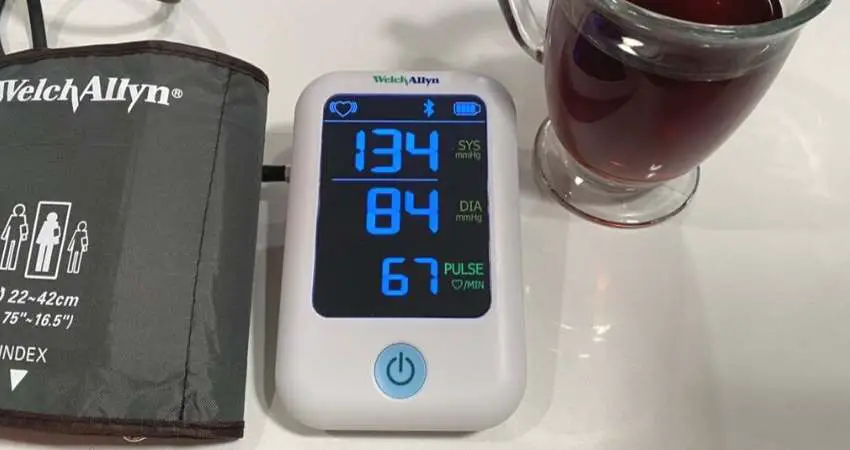
( Lower Your BP Naturally, In Only 30 Days Or Pay Nothing…Visit Website By Clicking Here Or Photo Above )
How High Blood Pressure Can Cause Heart Valve Damage
In the connection between high blood pressure and aortic valve disease, research has suggested the high BP can cause cell damage. This can result in the loss of elasticity in the aorta and stiffening of the valve over time. When elevated blood pressure was shown to increase the risk of mitral regurgitation, the researchers suggested elevated blood pressure can cause the valve to deteriorate ((PLOS Medicine: Elevated blood pressure and risk of mitral regurgitation: A longitudinal cohort study of 5.5 million United Kingdom adults)). Someone I know who has a heart valve problem just purchased an AED Defibrillator for his home. These machines are life savers and well worth some peace of mind. They are extremely easy and simple to use. I took a local CPR class which included defibrillator training as an addition. He purchased a Philips which you can check on Amazon right here, Defibrillator.Four Types of Heart Valve Damage Caused by High Blood Pressure
1. Aortic Valve Stenosis
What is the Aortic Valve? The valve is located between the lower left ventricle and the aorta artery. It allows blood to flow from the lower left ventricle, exiting the heart into the aorta2. What is Aortic Valve Stenosis? This occurs when the blood flow from the left lower ventricle to the aorta artery is restricted due to the narrowing of the aortic valve opening ((National Center for Biotechnology Information: Aortic stenosis)). An enormous study was recently published that evaluated over five million patients over a 25-year period. Approximately, this number of people covered 7% of the United Kingdom population. The patients had no known cardiovascular or valve disease at the beginning and were followed up for about ten years. Their aim was to research the connection between elevated systolic BP and heart valve disease ((PLOS Medicine: Elevated blood pressure and risk of mitral regurgitation: A longitudinal cohort study of 5.5 million United Kingdom adults)). The study found that for every additional 20 mmHg above a systolic BP of 115 mmHg, was associated with a 41% higher risk of aortic valve stenosis later in life. In addition, they compared two groups, one group with a systolic BP 120 mmHg or lower and the second group with a systolic BP 161 mmHg or higher. The second group had more than twice the risk of being diagnosed with Aortic Valve Stenosis. The researchers noted that controlling blood pressure at levels lower than elevated may be a way to help prevent heart valve damage3. The lead researcher, Professor Rahimi said: “The study shows that serious valvular heart diseases that are common at old age are not simply due to aging. Long-term exposure to higher blood pressure is a strong and potentially modifiable risk factor for aortic stenosis and regurgitation at every level of typical blood pressure, not only in those who are classified as having hypertension.”2. Aortic Valve Regurgitation
What is Aortic Valve Regurgitation? This occurs when the aortic valve doesn’t close tightly and it leaks. The leaky valve allows blood to flow back into the lower left ventricle. The same study noted above found an interesting observation. With above a systolic BP of 115 mmHg, every additional 20 mmHg higher was associated with a 38% higher risk of aortic valve regurgitation later in life. In addition they compared one group with systolic BP 120 mmHg or lower and a second group with a systolic BP 161 mmHg or higher. The higher BP group were nearly twice as likely to be diagnosed with aortic valve regurgitation later on ((European Society of Cardiology: Elevated blood pressure is linked to increased risk of aortic valve disease: analysis of 5.4 million adults)).3. Mitral Valve Regurgitation
What is the Mitral Valve? The valve is located between the upper left atrium, and the lower left ventricle. It allows blood to flow from the upper left atrium into the lower left ventricle when it opens ((American Heart Association: Problem: Mitral Valve Regurgitation)). What is Mitral Valve Regurgitation? This occurs when the mitral valve doesn’t close as tight as it should causing it to leak blood. The leaky valve allows blood to flow back into the left atrium ((American Heart Association: Prolapse/Regurgitation)). The large study of over 5 million people mentioned above, also aimed to test another theory elevated. They examined if systolic blood pressure is connected to a higher risk of mitral valve regurgitation. The researchers found long-term elevated blood pressure was associated with an increased risk of primary and secondary mitral regurgitation. They noted mitral valve regurgitation is not always due to old age and that prevention may lower the risk4.
4. Pulmonary Valve Regurgitation
What is the Pulmonary Valve? The valve is located between the lower right ventricle and the exit of the heart to the lungs. It allows blood to flow out of the lower right ventricle into the pulmonary artery5. What is Pulmonary Valve Regurgitation? This occurs when the pulmonary valve doesn’t close tight causing it to leak. The leaky valve allows blood to flow back into the lower right ventricle ((National Center for Biotechnology Information: Pulmonic Regurgitation)). One of the most common causes of pulmonary valve regurgitation is pulmonary hypertension6. Pulmonary hypertension is high blood pressure in the lungs. The arteries in the lungs become stiff, narrow and damaged. This puts an extra strain on the right side of the heart as it struggles to pump blood through the lungs7.Read Next
You may be wondering how or if low blood pressure can cause heart valve damage. If so, you’ll want to read my other blog post, Heart Valve Problems and Low or High Blood Pressure. If you found this Blood Pressure topic interesting check out these related blood pressure articles also found in this same website:- Fluctuating Blood Pressure and Inconsistent BP Readings
- Causes Of False Blood Pressure Readings
- Effect Of Arm Position On Blood Pressure
- The American Heart Association: Risks for Heart Valve Problems [↩]
- Cleveland Clinic: Aortic Valve Surgery [↩]
- European Society of Cardiology: Elevated blood pressure is linked to increased risk of aortic valve disease: analysis of 5.4 million adults [↩]
- PLOS Medicine: Elevated blood pressure and risk of mitral regurgitation: A longitudinal cohort study of 5.5 million United Kingdom adults [↩]
- Wikipedia: Pulmonary Valve [↩]
- The American Heart Association: Problem: Pulmonary Valve Regurgitation [↩]
- Pulmonary Hypertension Association: About Pulmonary Hypertension [↩]